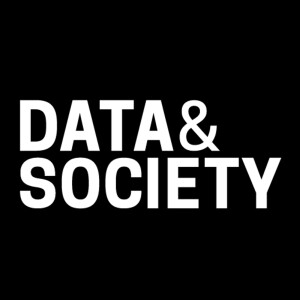
Natasha Schüll – From the NSA scandal to Facebook’s controversial “mood experiment,” the past decade has seen heated debate over the ways that governments and corporations collect data on citizens and consumers, the ends to which they use it, and the threat this poses to civil liberties. Yet even as this discussion over surveillant monitoring unfolds, the public has embraced practices and products of self-tracking, applying sensor-laden patches, wristbands, and pendants to their own bodies.
Drawing on ethnographic fieldwork, this talk explores how mainstream self-tracking technologies – in their design, marketing, and use – increasingly part ways with the ethos of intensive self-attention found within the Quantified Self (QS) community, serving as digital compasses to guide consumers through the confounding, tempting, and sometimes toxic landscape of everyday choice making and lifestyle management (for instance, by regulating the micro-rhythms of their bites, steps, sips, and breaths). By offering them a way to fulfill the cultural demand for self-management while delegating the often tedious, sometimes existentially taxing labor involved in meeting that demand, such devices at once exemplify and short-circuit ideals of individual agency and responsibility.
In the story of self-tracking technology and its increasing automation, a certain ambivalence over the terms of contemporary selfhood comes to the fore. Are there any connections to be drawn between this ambivalence and broader debates over governmental and corporate surveillance, data privacy, and the possibility for resistance?
view more
More Episodes
Becoming Data Episode 1: Data & Humanity
 2021-05-17
2021-05-17
 2021-05-17
2021-05-17
Becoming Data: Trailer
 2021-05-10
2021-05-10
 2021-05-10
2021-05-10
Digital Technology and Democratic Theory
 2021-02-03
2021-02-03
 2021-02-03
2021-02-03
Governing an Algorithm in the Wild
 2021-01-13
2021-01-13
 2021-01-13
2021-01-13
Adtech and the Attention Economy
 2020-12-08
2020-12-08
 2020-12-08
2020-12-08
Electionland Misinformation
 2020-10-28
2020-10-28
 2020-10-28
2020-10-28
Metrics, Media, and Race
 2020-10-20
2020-10-20
 2020-10-20
2020-10-20
On Race and Technoculture | Part II
 2020-06-08
2020-06-08
 2020-06-08
2020-06-08
On Race and Technoculture | Part I
 2020-06-03
2020-06-03
 2020-06-03
2020-06-03
Data Feminism
 2020-05-21
2020-05-21
 2020-05-21
2020-05-21
Design Justice
 2020-05-06
2020-05-06
 2020-05-06
2020-05-06
Community and Accessibility Online
 2020-04-29
2020-04-29
 2020-04-29
2020-04-29
Abolish Big Data
 2020-03-10
2020-03-10
 2020-03-10
2020-03-10
Uncanny Valley
 2020-02-03
2020-02-03
 2020-02-03
2020-02-03
An Ecological Approach to Data Governance
 2020-01-27
2020-01-27
 2020-01-27
2020-01-27
012345678910111213141516171819
Create your
podcast in
minutes
- Full-featured podcast site
- Unlimited storage and bandwidth
- Comprehensive podcast stats
- Distribute to Apple Podcasts, Spotify, and more
- Make money with your podcast
It is Free
- Privacy Policy
- Cookie Policy
- Terms of Use
- Consent Preferences
- Copyright © 2015-2024 Podbean.com





